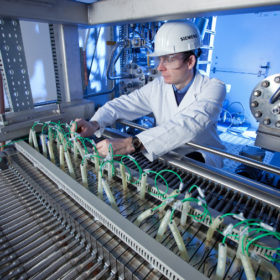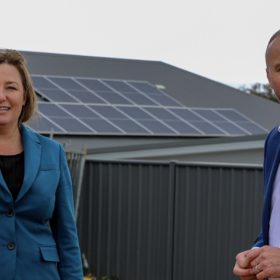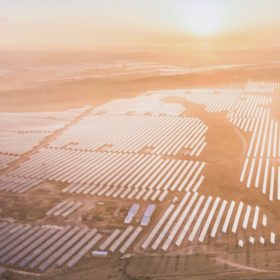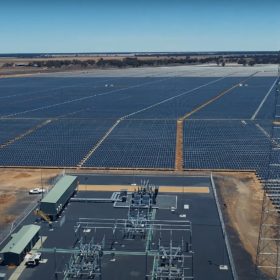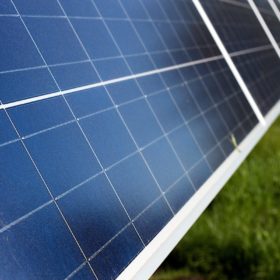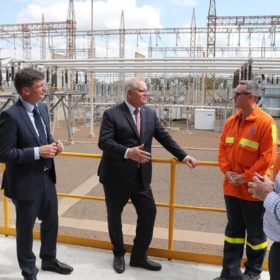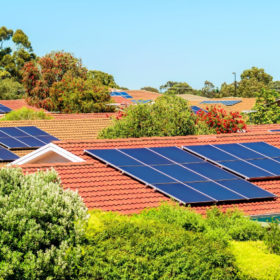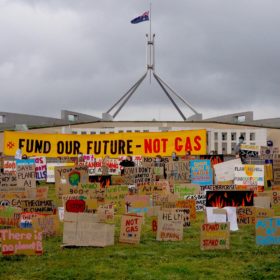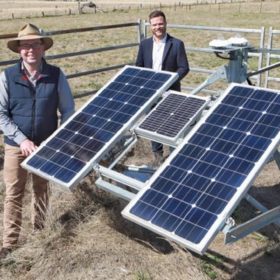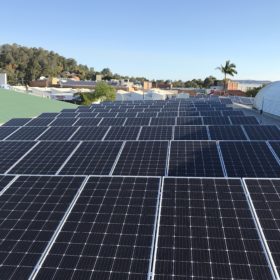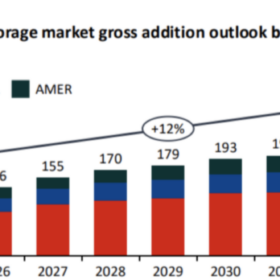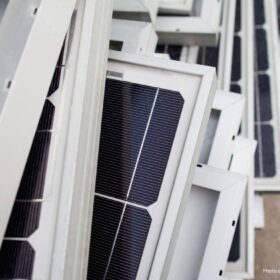UNSW researchers calculate the inevitability of green hydrogen
Researchers from the University of New South Wales have run the numbers, run them again, and then run them a third time to make triply sure. Australia’s solar resources and the rapidly falling costs of solar-powered hydrogen production mean that the future hydrogen economy is green whether the Morrison Government likes it or not.
ACT Labor promises 250 MW network of batteries if re-elected
ACT Chief Minister Andrew Barr has promised that if ACT Labor is re-elected in October, his government will invest $100 million over the next five years toward the construction of a 250 MW citywide battery network. A battery of that size is unprecedented but certainly achievable, and every Canberran can take part.
Green Gold Energy proposes two large-scale solar farms along SA-NSW Interconnector
Green Gold Energy has proposed a 185 MW and a 120 MW solar farm within 50km of each other at the South Australian end of the to-be-constructed SA-NSW Interconnector.
The way of zen: CSIRO signs 10-year PPA with Ross Garnaut’s Zen Energy
The CSIRO, Australia’s national science agency, has signed a 10-year PPA with Ross Garnaut’s Zen Energy. The deal will see solar energy from the Nurmurkah Solar Farm and the Nevertire Solar Farm halve the agency’s emissions.
Trafigura to develop 2 GW of renewables though partnership with Australian investment group IFM
Oil and metals trader will join forces with Australian investment group IFM to launch the new entity, which will develop solar, wind and energy storage projects – some of them supplying clean energy to Trafigura operations – as well as making acquisitions.
Angus Taylor’s tech roadmap is fundamentally flawed — renewables are doable almost everywhere
Honorary University of New South Wales Associate Professor, Mark Diesendorf, takes the Coalition’s Technology Roadmap apart, revealing just how unsealed the road really is, and why renewables pave the way.
A line in the silicon: SA solar industry inverted as new regulations come into effect
South Australia’s new solar installation regulations came into effect on September 28. The regulations, designed to better manage a distributed energy system, are thought rushed by some in the industry, but ultimately they should facilitate more solar integration.
“Fund Our Future Not Gas” is the call made to the Coalition in nationwide student protests
Over 500 separate protests, many of them virtual, took place on Friday as students and young Australians across the country again demonstrated their determination in the face of an inveterate Federal Government. Due to the restrictions of Covid-19, many of the protests took on imaginative shapes.
Elecnor appointed EPC on Australia’s biggest hybrid solar/battery project
Australia’s utility-scale solar is not untouchable. In a major win for the country’s clean-energy sector, UPC\AC Renewables yesterday announced the appointment of an EPC for the first phase of its 720 MW New England Solar Farm and colocated potential 400 MW battery energy storage system.
WA Flexibility Services Pilot cues a 100MW orchestra of DER
How to get the gigawatts of distributed solar generation in the WA’s South West Interconnected System to play nicely with the network: Western Power has gathered 100 MW of resource to test its coordinated ability to stabilise the system on low demand days.
